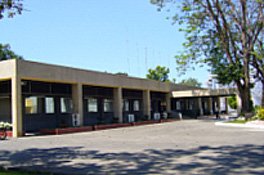Global Chemicals
Kao Philippines
- Home
- Our Business
- Company Profile
Company Profile
Pilipinas Kao, Inc. (PKI) has been in operation since 1979, supplying high quality, biodegradable chemical products from coconut oil in both the local and international markets. Pilipinas Kao operates an oleochemical manufacturing complex in the Jasaan Misamis Oriental Ecozone where high value-added products such as high purity single cut fatty alcohols, refined glycerin, tertiary amines are produced.These environment-friendly oleochemicals are used for various applications such as the base material for the manufacture of cosmetics, shampoos, toothpaste, pharmaceuticals, industrial and household detergents, emulsifiers, additives, and agricultural chemical products.
Most of the plant's produce is exported to Asian neighbors, the USA, Europe, Africa, and the Middle East. In recognition of its valuable contribution to the economy, the Philippine government declared the whole plant site in Jasaan, Misamis Oriental as an Economic Zone in 2001, and thus accorded Pilipinas Kao, Inc. with a host of incentives.
PKI is a subsidiary of Kao Corporation, one of Japan's best-managed firms. Kao's growing global network encompasses affiliates and subsidiaries in 25 countries all over the world including the Philippines. Presently, Kao is one of the leading manufacturers and distributors of daily-use household products such as soaps and detergents, cosmetics, etc. that all contribute to consumers' lives by promoting cleanliness, health and beauty.
Aside from household products, Kao also produces high quality specialty chemicals. Its product portfolio includes oleochemicals and various surfactants, fatty chemicals, specialty chemicals, edible oils and food additives.
Kao's first involvement in the Philippines came in 1965 when the former National Investment and Development Corporation (NIDC) decided to establish a plasticizer plant using coconut fatty alcohol as a major raw material for producing Butyl Coco Phthalate (BCP). Kao provided the technology and constructed the first coco chemical plant in the Philippines in 1967.
Kao Corporation provided such high and new technology to NIDC. Kao continuously provided technical assistance free of charge and later helped make the coco chemical company viable by buying the entire fatty alcohol production when there was a shift to petro-based raw materials to make Dioctyl Phthalate (DOP) instead of BCP.

The office of the Jasaan factory
Rationale for Establishment of a Cocochemical Complex in the Philippines
In the early seventies, Dr. Yoshio Maruta, former Chairman of Kao Corporation, conceived the idea of establishing a coconut chemical complex. The final decision to pursue the project and to locate in the Philippines came in May 1976.
The Philippines supplies a large percentage of the world market of coconut oil. This is one of the main raw materials for many of Kao's products.
In accordance, therefore, with Kao's philosophy under Dr. Yoshio Maruta, the Philippines and the Filipino people, especially the coconut farmers, should be the direct beneficiaries of a high technology and capital intensive coco chemical manufacturing complex.
Dr. Maruta believes that the Philippines had to pursue a coconut industrialization program to make full use of its indigenous materials. On a long-range basis, coconut is a more reliable source for producing many intermediate chemicals than petroleum.
Rationale for Establishment of a Cocochemical Complex in the Philippines
In its early stage of operation, PKI manufactured fatty alcohols exclusively for Kao Japan's consumer products. After a series of expansions and with the diligence of its employees, PKI has extended its presence all over the world. PKI's markets now include US, Europe, the African region, the Middle East and Asia, our base market.
In line with the company's vision to provide more livelihood to the community and additional dollar earnings to the country, PKI registered itself under the Philippine Economic Zone Authority or PEZA. And after being granted business-friendly, PEZA-initiated incentive programs, PKI is now poised to be a more competitive player in the global oleochemical market arena.
About Pilipinas Kao, Inc
Kao Chemical Business
- Home
- Our Business
- Company Profile

